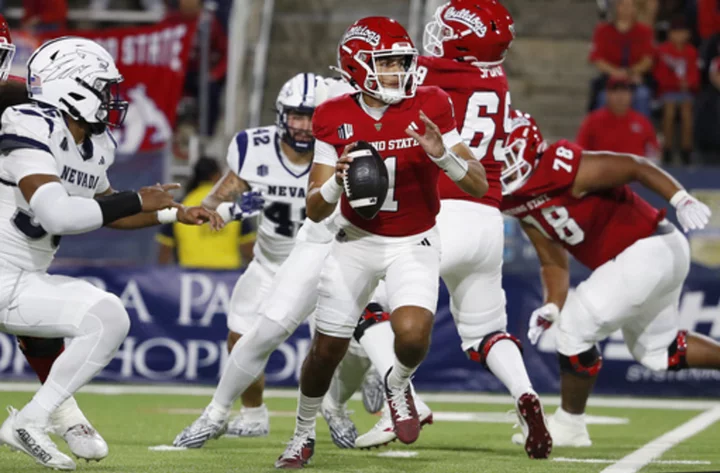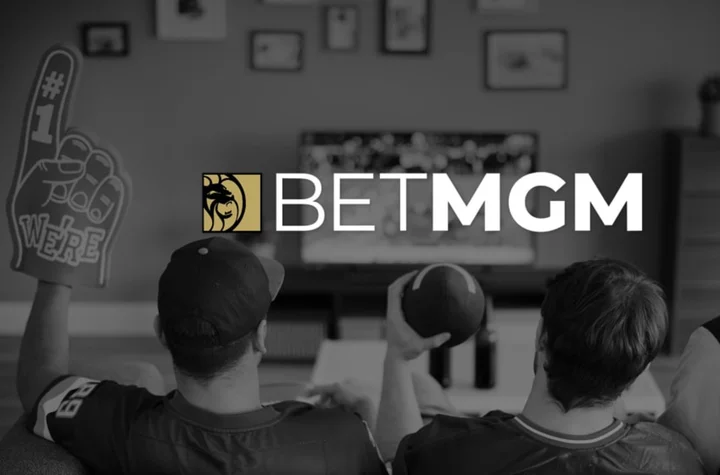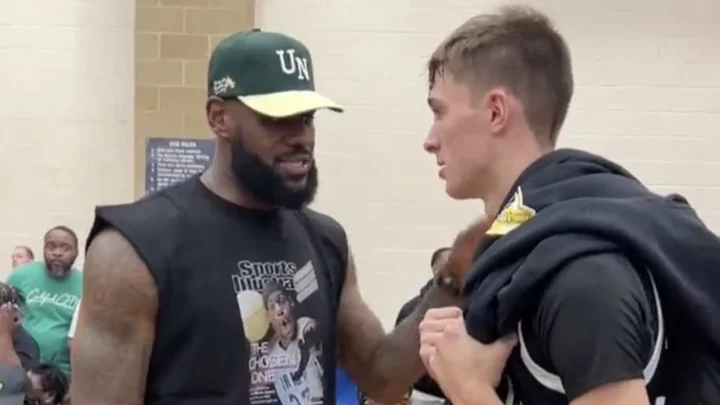The red flags were flying all around Randy Miller. He’d already had bouts with bankruptcy. He’d been accused — not once, but three times — of defrauding business associates. He pointed to a partnership with international soccer powerhouse Manchester United, even though the other ties to professional teams he cited were over three decades old.
But when the 68-year-old businessman and his son turned to Wall Street in 2020 and 2021 for money to build a sprawling youth-sports complex in the Sonoran Desert outside of Phoenix — after repeatedly failing to drum up enough financing on his own — it not only obliged, but lent him $280 million to do so.
All it took was an eight-page application to the Arizona Industrial Development Authority, which had never turned down any of the scores of borrowers that sought the state’s imprimatur on their bond sales, an audit late last year showed. Dangling yields near 8% back when the Federal Reserve was pinning rates near zero, the debt was snapped up by big institutional money managers like the Vanguard Group Inc. and AllianceBernstein Holding LP.
Quickly, it all went south.
Organizations that Miller said were lined up to use Legacy Park never showed. At least seven, including Manchester United, told Bloomberg News they never signed the “pre-contracts” or “letters of intent” cited in the bond prospectus. Three said letters bearing their names were fake. Bondholders, meanwhile, who competed aggressively for high-yielding debt when money was easy and interest rates were low, now stand to be virtually wiped out.
In less than three years, the former minor-league baseball player’s dream project has morphed into what is now the third-largest default in the municipal bond market since the pandemic.
Miller and his son didn’t respond to emails and phone calls from Bloomberg seeking comment. Neither has been accused of any wrongdoing by law enforcement.
Bad Timing
To be clear, they had their share of bad luck and bad timing, launching the project just as the pandemic upended the sports industry and the economy. Nevertheless, its collapse also exposed something that’s long been an open secret on Wall Street: Each year, billions of dollars in high-risk projects are financed with little vetting or government oversight — all because they piggyback on the names of state and local municipalities.
“This is going to be the poster child for what’s wrong” with these types of government-sponsored arrangements, said Stephen Griffin, a consultant for Saybrook Fund Advisors, which set up a vehicle that filed suit against Miller and other parties to the bond sale after the default.
Freed from the regulations that apply to sales of corporate stocks and bonds, such debt is sold by a constellation of agencies across the US that do little if anything but rent out access to the municipal market. Some of the deals are arranged for local colleges, hospitals and other well-established businesses. But they’ve also been used to finance new nursing homes, charter-school startups and for profit-businesses like the American Dream shopping mall in New Jersey’s Meadowlands, creating a risky corner in one of the bond market’s safest havens.
All told, there are roughly $600 billion of these so-called conduit bonds, accounting for about 15% of the municipal bond universe.
There are few checks and balances, largely because the agencies aren’t responsible for the debt if a project fails. The securities are often unrated, and when interest rates were at rock-bottom levels, some of the highest yields in the industry made it easy to attract money managers in droves.
Now, as soaring borrowing costs close the door to low-cost refinancings, many more projects may be pushed to the brink.
“We’ve set ourselves up for a decent pipeline for defaults,” said Matt Fabian, a partner at Municipal Market Analytics.
His firm estimates that conduits already account for roughly three-quarters of the $15.5 billion of municipal bonds currently in default, excluding those from Puerto Rico. Among them are securities sold through the Arizona IDA, which has seen eight of its bond issues lapse into default since 2020, the fourth-highest among such conduits, according to MMA.
By the time Miller turned to the agency, it had already rubber-stamped dozens of bond-sales applications. In fact, from the time the agency was established in 2016 through June of last year, borrowers had raised over $8 billion selling conduit bonds using the agency’s name to finance 124 projects, according to the state audit. Not once was an application rejected.
Dirk Swift, the executive director of the Arizona IDA, said in an email that the agency leaves it up to underwriters and investors to do the vetting. He said the agency “does not substitute its judgment for the expertise of financial professionals” or “the investing marketplace.”
In August 2020, the agency sold $250 million of bonds for the Legacy project, with investors receiving a top tax-exempt yield of 7.84%, followed by another $33 million sale in June 2021.
The more than 1,000-page offering prospectus characterized Miller as a successful businessman with wide-ranging connections to the sports industry, citing his associations with the United States Football League’s Arizona Outlaws and the Phoenix Giants, which last played in the ’80s.
‘We Never Signed’
The prospectus also said that Miller’s management company had binding “pre-contracts” with 25 organizations planning to use the facility, estimating they would bring in $23 million annually. It said another 26 organizations — including Manchester United — had entered into similar “letters of intent” that promised $19 million more.
But Manchester United never authorized using the park as a US training ground, said Andrew Ward, a spokesman for the team. Ward said the purported letter from the UK-based club that was included in the prospectus is fake.
Officials with at least six other organizations that were said to have “pre-contracts” told Bloomberg News that they never signed such agreements, with two of them disputing the veracity of letters expressing interest in the facility.
Among them was Real Salt Lake-AZ, a youth soccer league affiliated with Major League Soccer’s Real Salt Lake. The prospectus included a letter from Real Salt Lake-AZ’s executive director, Brent Erwin, saying the club agreed to relocate its 7,000 players, tournaments and camps to Legacy’s park.
But Erwin said the organization made no such commitment and the signature on the letter isn’t his.
“We never signed or committed anything to Legacy Sports Complex,” Erwin said in an email. “We took the meeting when they were pitching the complex but made the decision to move no games, training or tournaments to the facility.”
Miller didn’t respond to a list of questions about the statements in the offering documents, which was sent to his email accounts, his LinkedIn profile, and to a spokeswoman for his company.
Michael Grimm, a spokesman for B.C. Ziegler & Co., the investment bank that underwrote the bond issues, declined to comment for this story. The underwriter was among those sued in the Saybrook-led lawsuit, and Grimm said the firm would address any questions about its role “in the context of any litigation.”
Miller had struggled in business well before the Legacy project.
In 2005, he purchased a small pool-cleaning company from John Hunt, who later sued Miller for allegedly failing to pay for the business. Miller agreed to settle and the court entered a judgment against him after he failed to pay it, according to court records. Five years later, after trying to raise money to get the sports park project off the ground, Miller was ordered to pay $96,000 to Monica Labadie, who sued him for failing to repay a loan she was told would bankroll the project.
Unable to pay, he filed for bankruptcy in 2012 — after twice doing so in the early 1990s — listing debts of $539,456 and assets of $890. Labadie said she was eventually paid what she was owed but Hunt said he gave up trying to collect.
Plan Gone Awry
Miller raised money again for the complex in 2018, planning to use cash to secure a letter of credit that would in turn be parlayed into collateral for a $200 million loan.
But a man who held himself out as a broker absconded with $2.4 million raised by Miller’s company, Legacy Sports, according to federal court records. Three people who’d invested in Miller’s letter-of-credit plan filed a lawsuit against him and his company for securities fraud in Maricopa County. Walter Simmons, one of them, said they dropped the case after reaching a settlement with Miller. Simmons said Miller repaid what he owed but he never received the equity stake in the project he was promised.
Miller was running short on options. Then, through a real estate consultant, he was put in touch with Ziegler, which had a niche raising money for nursing homes.
They decided to go through the Arizona IDA. To qualify for conduit financing, Miller converted one of his companies into a nonprofit called Legacy Cares and resigned from the board. Legacy Sports then signed a contract to develop and run the complex, and his son, Chad Miller, became chief executive. Chad Miller didn’t respond to phone and email messages. Doug Moss, who served as the president of Legacy Cares, didn’t respond to questions sent to his personal email and through the nonprofit’s attorneys. Moss hasn’t been accused of wrongdoing.
Ziegler, which was paid about $5.7 million in fees to underwrite the bond offering, sold them to big investors like Vanguard and AllianceBernstein, which were among the biggest buyers. Jessica Schifalacqua, a Vanguard spokesperson, said the investment was made as part of its broadly diversified fund portfolio. Carly Symington, an AllianceBernstein spokeswoman, declined to comment.
The pandemic posed challenges from the start by delaying the full opening, causing labor shortages and triggering event cancellations. Lackluster restaurant and concession operations also played a role, with the park bringing in just $27.7 million last year, far short of its projection for nearly $100 million.
After a failed effort to refinance the bonds, Legacy Cares began exploring alternatives, including a sale of the park. It fired Miller’s company as the operator in March. Two months later, it filed for bankruptcy.
In October, a preliminary deal was struck in bankruptcy court to sell the facility for $25.5 million, most of which would go to contractors waiting to be paid.
If it goes through, bondholders will come away with $2.2 million in cash and an 11% stake in the new operation — wiping out almost all the money they put in.
--With assistance from David Hellier, Neekait Mokashi and Wilson Lees.
Author: Martin Z. Braun









